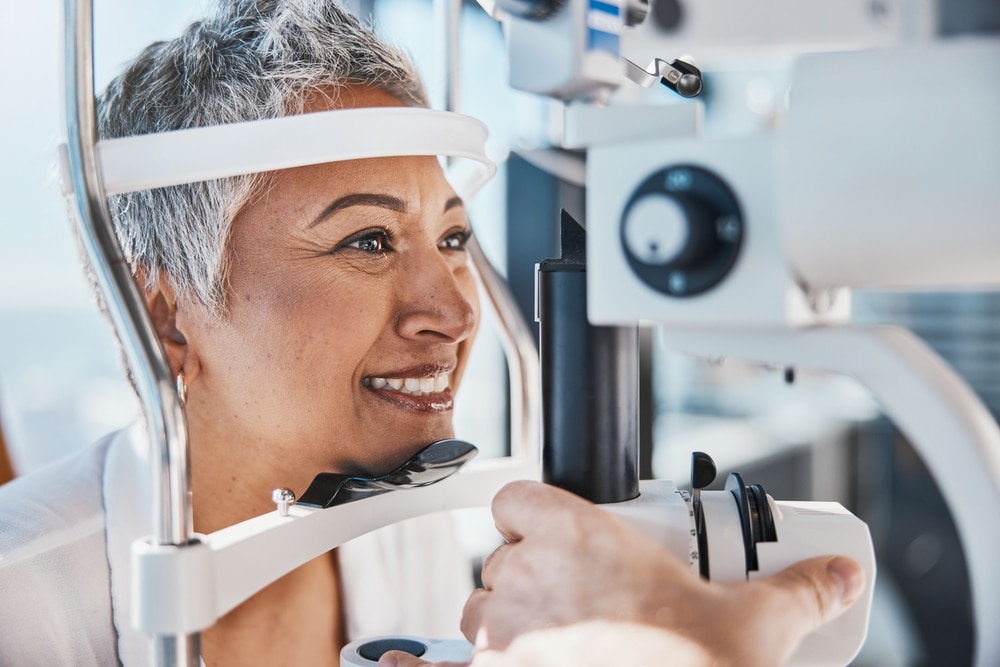What is an Ophthalmologist?
When you need eye care, understanding which type of eye doctor to see can feel confusing. You might hear terms like optometrist, ophthalmologist, and optician used interchangeably, but these professionals have different training levels and provide different types of care.
If you’re searching for an ophthalmologist in Fort Worth, knowing these distinctions helps you make informed decisions about your vision health.
Which Type of Eye Doctor Should You See in Fort Worth?

Eye care involves multiple professionals working together, each with a specific role and specialized training. The primary difference between these providers lies in their education, medical training, and the scope of services for which they’re licensed to treat patients.
An optometrist provides primary vision care, while an ophthalmologist is a medical doctor who can diagnose and treat all eye diseases and perform surgery. Dr. Brett Mueller, a board-certified ophthalmologist in Fort Worth, completed medical school, residency training in eye surgery, and specialized fellowship training in refractive surgery. His practice at Mueller Vision focuses on providing surgical eye care for patients in Dallas-Fort Worth. These services include: LASIK eye surgery, EVO-ICL, Refractive Lens Exchange, PRK, Laser Cataract Surgery, SMILE, Cross-Linking, and interventional glaucoma treatments.
This extensive medical education sets ophthalmologists at Mueller Vision apart from other eye care providers. The training pathway for an ophthalmologist includes four years of college, four years of medical school, one year of internship, and at least three years of residency in ophthalmology.
Dr. Mueller is one of the few ophthalmologists in Dallas-Fort Worth and the United States who actually did a designated fellowship after his residency, where he honed his skills on how to perform LASIK eye surgery, EVO ICL, Refractive Lens Exchange, and Laser Cataract eye surgery.
What Does an Optometrist Do?
Optometrists hold a Doctor of Optometry (OD) degree and provide essential vision care services and primary eye care needs. They complete four years of undergraduate education followed by four years of optometry school.
Their training focuses on vision testing, prescribing corrective lenses, detecting eye conditions, and being the primary eye care providers of their respective communities. An optometrist can perform comprehensive eye exams, prescribe glasses and contact lenses, and prescribe medications for specific eye conditions.
They play a vital role in routine eye care and often work in conjunction with ophthalmologists. When an optometrist detects signs of eye disease or conditions requiring surgery, they refer patients to an ophthalmologist. We at Mueller Vision LASIK & Cataract Eye Surgery work hand and hand with our optometry colleagues to provide the best eye care for our mutual patients.
What Makes Ophthalmologists Different?
Ophthalmologists are medical doctors (MD) or Doctors of Osteopathic Medicine (DO) who specialize in comprehensive eye and vision care. They are the only eye care professionals who complete medical school and are licensed to practice medicine and surgery.
This medical training enables ophthalmologists to understand how eye conditions are related to overall health conditions, such as diabetes and high blood pressure. They can diagnose and treat all eye diseases and perform delicate eye surgery.
The medical education ophthalmologists receive gives them unique capabilities in managing complex eye conditions and surgical procedures.
When Should You See an Ophthalmologist?

Certain situations require the medical expertise of an ophthalmologist in Fort Worth. If you experience symptoms of eye disease, have a family history of eye conditions, require eye surgery, or have been diagnosed with a condition such as glaucoma, cataracts, or diabetic retinopathy, an ophthalmologist can provide the appropriate level of care. It can also be a good idea to seek the expertise of your local optometrist to see if an ophthalmologist might be needed to help with your vision needs.
An ophthalmologist can also help if you’re interested in vision correction surgery, such as LASIK eye surgery, which requires specialized surgical expertise and medical training. Dr. Mueller is one of the few ophthalmologists to complete additional fellowship training to focus on specific areas of eye care, where he specializes in getting people out of glasses and contacts.
These subspecialties enable ophthalmologists to develop in-depth expertise in treating specific conditions or parts of the eye. Dr. Mueller specializes in refractive surgeries, including LASIK, RLE, and EVO ICL, as well as minimally invasive glaucoma surgeries (MIGS) and cataract surgery, at Mueller Vision in Fort Worth.
His fellowship training focused specifically on advanced vision correction procedures. This training enables him to assess each patient’s unique eye characteristics and recommend the most suitable vision correction approach for their specific needs.
Choosing the Right Eye Care Provider
Selecting an eye care provider depends on your specific needs. For routine eye exams, prescription updates, and primary eye care, an optometrist provides appropriate services.

When you require medical treatment for certain eye diseases, evaluation for eye surgery, or management of complex conditions, an ophthalmologist provides the necessary medical expertise. An optometrist can provide guidance on when it is best to see an ophthalmologist. If you live in the Fort Worth area and need an ophthalmologist, especially when it relates to anything in terms of LASIK, cataracts, cornea conditions, or glaucoma, we have you covered at Mueller Vision.
Dr. Mueller’s board certification from the American Board of Ophthalmology and additional board certification from the World College of Refractive Surgery, combined with his extensive fellowship training, position him to handle both routine and complex eye care needs. His approach centers on treating patients like family, ensuring each person receives personalized care tailored to their unique vision goals.
Schedule your appointment at Mueller Vision in Fort Worth, TX, to access top-quality ophthalmic care and stay on top of your eye and vision health!

